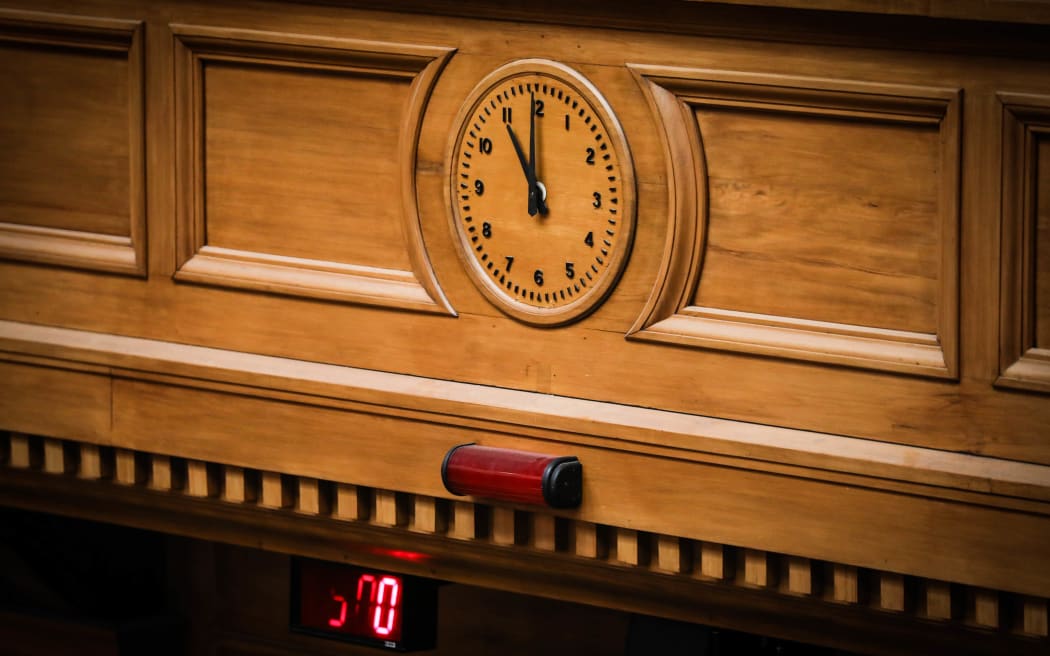For the past two weeks the main event in Parliament’s debating chamber has been the Annual Review Debate. This ten-hour-long debate happens every year in the run-up to a new budget.
Formally, it is the Committee of the Whole House stage for the bill that confirms the government’s books for the period initiated two budgets ago. The Appropriation (2022/23 Confirmation and Validation) Bill.
In the House, the debate is introduced to the MPs like this: "The annual review debate is the debate on the financial position of the Government and the annual reviews of departments, Officers of Parliament, Crown entities, public organisations, and State enterprises, as reported on by select committees."

Photo: VNP / Daniela Maoate-Cox
The build up to Annual Review Debate is a series of inquiries by the select committees. Each subject specialist committee selects a range of government organisations within their purview to investigate, with written questions and public hearings, including grilling the ministers responsible.
The results of all of those investigations are collected in a huge and fascinating report (see volume 1 here and volume 2 here). It is that report that is being debated in The Annual Review Debate.
The debate is a committee stage, but with many more ministers appearing than usual. The ministers turn up in the House one at a time, and answer questions mostly from opposition MPs, about the performance of their own parts of the government.
Keeping an eye on the clocks
The Annual Review Debate is ten hours long, and each party is allocated a portion of that time according to their size. The debate is not all nicely timed-out speeches though, it is questions and answers. Sometimes lots of questions and few answers and sometimes a few questions and really long answers, depending on which minister is at the Table.
At the front of the debating chamber a member of parliament’s staff sits with seven timers; one for each party. Every time an MP or a minister gets up and speaks that time is knocked off their party's total.
It is a count-down to zero for each party, and each party is responsible for managing its own time-resource to make sure that they have enough for:
- The apolitical introductory speeches to be made on behalf of a select committee for each subject section of the debate (a mix of parties, but most committee chairs are from governing parties).
- All the questions they want to ask (mostly from opposition parties).
- All the answers to those questions (entirely from governing parties).
A debate with limited time but unlimited speeches is unusual. It is also very difficult for party whips to manage. They have to make sure to portion out their time at the right rate, with an eye to political strategy; leaving enough time to ask or answer questions without knowing exactly where the other parties will focus their own time.
It would be highly embarrassing to have no time left for the final topics and either not be able to ask questions, or not give answers.
It turns out that is exactly what occurred this week, when the National Party ran out of time with hours of debate yet to happen, and on contentious areas. Those final areas included media, social development and disability issues – two of which had ministers who have lost their jobs recently.
As it happens, The Business Committee (a multiparty committee that agrees House business), made the following determination:
“Agreed, That the time allocated for the annual review debate be extended by 30 minutes, and Ministers may use this time to answer questions.”
To help National out further, both New Zealand First and ACT gifted a further 15 minutes to National to allow their committee chairs to also speak. Whether the Business committee’s move was generous or not, it was embarrassing for the National whips and Leader of the House. No one likes to get these things wrong, especially not where the error is so obvious.


